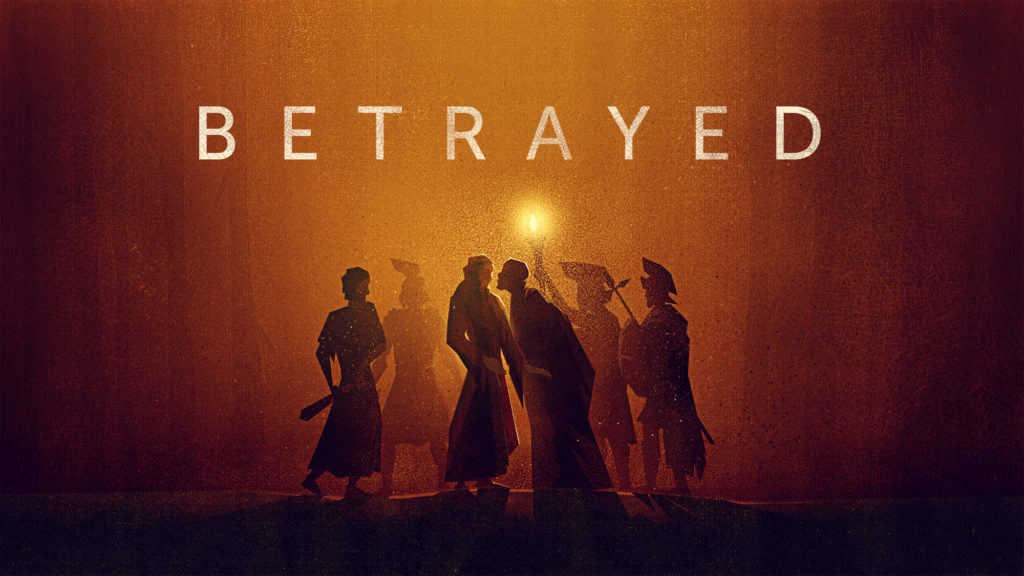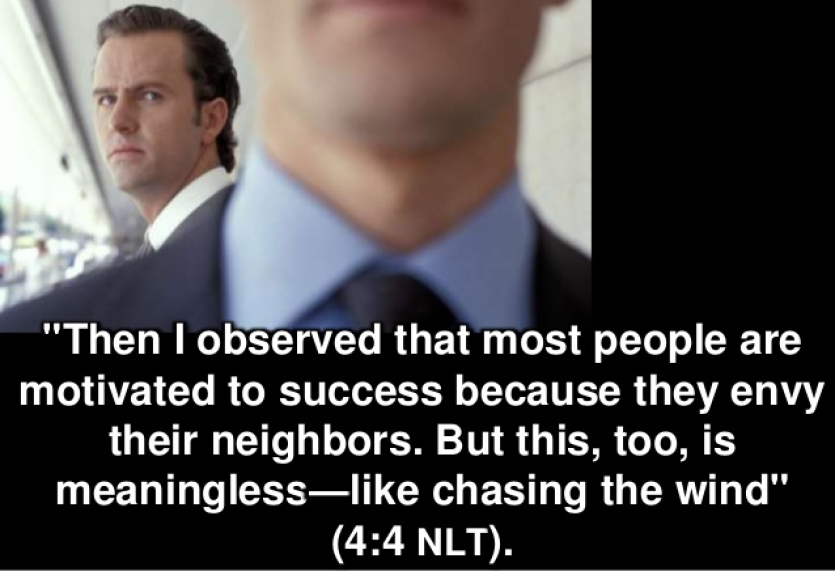Betrayal Among Christians
 As Jesus continued his prophetic discourse in Matthew 24, He gives His disciples a sense of the progression of the events that will happen in the last days. He warned that in the last days before the Great Tribulation, many Christians will be offended and betray one another:
As Jesus continued his prophetic discourse in Matthew 24, He gives His disciples a sense of the progression of the events that will happen in the last days. He warned that in the last days before the Great Tribulation, many Christians will be offended and betray one another:
Many shall be offended, and shall betray one another, and shall hate one another. And many false prophets shall rise, and shall deceive many. And because iniquity shall abound, the love of many shall wax cold. (Matthew 24: 9-12 KJV)
Now the brother shall betray the brother to death, and the father the son; and children shall rise up against their parents, and shall cause them to be put to death. (Mark 13:10 KJV)
You will be delivered up and betrayed even by parents and brothers and relatives and friends, and some of you they will put to death. And you will be hated (despised) by everyone because you bear My name and for its sake (Luke 21:16-17).
Many will turn away from the faith, be offended and betray one another to save their own lives. The Greek word for love used here is agape, which is Christian love shed abroad in our hearts by the Holy Spirit. This love will grow cold because of multiplied lawlessness.
Many will start questioning God which will harden their hearts even more. Where lawlessness abounds, the love of God will be squeezed out of people’s hearts and will betray one another to the world government Gestapo.
They will not be prepared to be persecuted or hated for the name of Jesus. What is very frightening is that persecution of Christians is most likely to come from believers. The worst kind of persecution is Christians who persecute Christians.
We need to remind ourselves that infiltration of the churches by communists, atheists, occultists, even satanists, or other anti-God forces is a ply of Satan. Just because we assume someone is a believer with pure motives does not mean that he is. It is estimated that eighty-five percent of the Christians turned in fellow believers during the revolution in China.
David Wilkerson wrote in one of his Time Square Church Pulpit Series, “The Persecution of the Righteous” (4/13/87):
In His going–away message to the disciples, Jesus warned them of certainty of persecution. He said, “If they have persecuted me, they will also persecute you” (John 15:20). Who are they? Who is it who will persecute the most intimate followers of Christ? It is the religious crowd! Those with outward forms of godliness without the power of the total heart surrender—these will persecute those who glory only in the Cross of Christ. The godless, humanistic Romans were not the real persecutors of the Master.
His greatest abuse was at the hands of those most steeped in the Law, the hierarchy of the church, and the masses who boasted that God was their Father. Money relief from suffering, and desire to save themselves are three motives for betraying others…..I have seen more than a few believers trade in their Christian birthright for a mess of earthly pottage…. Christians who talk about the possibility of persecution may be ostracized by other believers who think that they will be taken from this world before any trouble begins.
Now is the time for believers to ask the Lord for guidance, wisdom, and strength to face whatever the future holds. We need to watch and pray that we will not deny the Lord and other believers and to watch therefore, and pray always that we may be counted worthy to escape all these things that will come to pass and to stand before the Son of Man.” (Luke 21:36).
In these increasingly dark times, we need to be praying for discernment for the Lord to reveal the true motives of whom we call our friends. For true friendship cannot really be true unless that love that is shed abroad in our hearts by the Holy Spirit cements the friends together (see Romans 5:5). We need to acknowledge that in many professing Christians, there is little evidence of true koinonia (fellowship).
You can’t assume a person is a Christian if he uses any religious language. Knowing in whom a person can confide and whether that person truly knows Jesus Christ may mean the difference between life and death.
We should take courage from God’s wisdom as the Book of Proverbs says: “Discretion shall watch over you, understanding shall keep you. (Proverbs 2:11).
Christians who understand the times need to develop discernment about people; seek the counsel of others they trust; find like-minded people who can be part of a mutual support group and who they can cooperate with, and develop an instinct for what doesn’t feel right.
No matter how good something looks or sounds on the surface, go with your gut feeling, with your instinct, with your intuition, with that green light or check in your spirit which the Holy Spirit gives you.
In his masterpiece classic book, The Gulag Archipelago, Aleksandr Solzhenitsyn describes how betrayal became a form of existence during the time of persecution in Russia. “All human emotions love friendship, envy, love of one’s fellows, mercy, thirst for fame, honesty-fell away from us along with the meat of our muscles
Given this constant fear over a period of many years—for oneself and one’s family—a human being became a vassal of fear, subjected to it. And it turned out that the least dangerous form of existence was constant betrayal. The mildest and at the same time most widespread form of betrayal was not to do anything bad directly, but just not to notice the doomed person next to one, not to help him, to turn away one’s face to shrink back. They had arrested a neighbour, your comrade at work, or even your close friend. You kept silence. You acted as if you had not noticed. (For you could not afford to lose your current job!).
Under the coming persecution, some Christians will renounce their faith and betray those who remain faithful to Jesus Christ. And it’s more likely that those who betray their fellow believers will betray them to the godless secular government.
What about your relatives? Can your close relative, son or daughter betray you to the secret police or worse still cause your death? To answer the question, let’s look at the words of Jesus. He said:
Now the brother shall betray brother to death, and the father the son; and children shall rise up against their parents, and shall cause them to be put to death. (Mark 13:12 KJV)
It happened in communist Russia during a trial of some Baptists at Nikitovka in the Donbas, in January 1964. Alexander Solzhenitsyn describes what really happened in one of the trials against Christians and their children:
While the trial was in progress there were shouts from the spectators: “Pour kerosene over the lot and set fire to them!” The court did nothing to curb this righteous indignation. Typical of its procedures: it admitted the evidence of hostile neighbours and also of terrorized minors; little girls of nine and eleven were brought before the court (who the hell cares what effect it has on them as long as we get our verdict). Their exercise books with texts from the Scriptures were introduced as exhibits.
One of the defendants, Bazbei, father of nine children, was a miner who had never received any support from the Union committee at his pit because he was a Baptist. But they managed to confuse his daughter Nina, a schoolgirl in the eighth grade, and to suborn her with fifty rubles from the Union committee and a promise to place her in an institute later on, so that during the investigation she made fantastic statements against her father: he had tried to poison her with a sour fruit drink; when the believers were hiding in the woods for their prayer meetings (because they were persecuted in the settlement) they had had a radio transmitter—“a tall tree with wire wound all around it.”
Afterwards, this lying statement began to prey on Nina’s mind, she became ill and was put in the violent ward of an asylum. Nonetheless, she was produced in court in the expectation that she would stick to her evidence. But she repudiated every word of it!
“The interrogator dictated what I had to say himself.” It made no difference. The shameless judge ignored her latest statements and regarded only her last statements and her earlier evidence as valid….”Now, what do you mean by that? It says here in your deposition….You testified during the investigation…. What right have you to retract now? That’s an offence, too, you know!”
“How can you talk about the end of the world when we are committed to the building of Communism.
This was the closing statement made by one young girl, Zhenya Khloponina. “Instead of going to the cinema or to dances, I used to read the Bible and say my prayers—and just for that, you are taking my freedom from me. Yes, to be free is a great happiness, but to be free from sin is a greater still….
The sentences: Two of them got five years in the camps, two of them four years, and Bazbei, father of all those children got three. The defendants accepted their sentences joyfully, and said a prayer. The “representatives from enterprises shouted: “Not long enough! Make it more!” (Throw kerosene over them and put a match to it….)
Russia had just signed the World Convention on “the fight against discrimination in the sphere of education.” One of its points was that parents must be allowed to provide for the religious and moral education of their children in accordance with their own convictions.” But that is precisely what we cannot allow!
Anyone who speaks in court on the substance of the case, anyone who tries to clarify the issue, is invariably interrupted, diverted from his train of thought, deliberately confused by the judge, who conducts the debate on this level: “How can you talk about the end of the world when we are committed to the building of Communism.”
And who is building Communism today? Progressive British, American, German, French and “left-wing” thinkers and students in the West!


 The book of Acts provides the basic history of the spread of Christianity from Jerusalem to Rome following the death and resurrection of Jesus Christ. Let’s briefly examine what the apostles had to say about this very controversial subject.
The book of Acts provides the basic history of the spread of Christianity from Jerusalem to Rome following the death and resurrection of Jesus Christ. Let’s briefly examine what the apostles had to say about this very controversial subject. The Old Testament Passover Lamb, a type of Christ, was examined for 72 defects. The true Lamb of God, our Lord Jesus Christ, was absolutely without fault. No wonder Pilate said to the chief priests and the people, “I find no fault in this Man.” In Genesis 22, the Bible tells us when Abraham was about to sacrifice his son, Isaac, God provided Himself with a Lamb, Who in the fullness of time would take away the sin of the world.
The Old Testament Passover Lamb, a type of Christ, was examined for 72 defects. The true Lamb of God, our Lord Jesus Christ, was absolutely without fault. No wonder Pilate said to the chief priests and the people, “I find no fault in this Man.” In Genesis 22, the Bible tells us when Abraham was about to sacrifice his son, Isaac, God provided Himself with a Lamb, Who in the fullness of time would take away the sin of the world. In 1970, Hal Lindsey published The Late Great Planet Earth. The book sold millions of copies and introduced a generation to the miraculous fulfillment of end times bible prophecies in our day and time.
In 1970, Hal Lindsey published The Late Great Planet Earth. The book sold millions of copies and introduced a generation to the miraculous fulfillment of end times bible prophecies in our day and time. In His
In His  One great writer has said that “Freedom’s deadliest enemy is irresponsibility.” Sometime back I was watching Joyce Meyer talking about the death of her younger brother on God TV as part of her message on the life of self-pity compared to a life of diligence and faith.
One great writer has said that “Freedom’s deadliest enemy is irresponsibility.” Sometime back I was watching Joyce Meyer talking about the death of her younger brother on God TV as part of her message on the life of self-pity compared to a life of diligence and faith. The following is a prophetic word for Great Britain given through Lance Lambert, who had a great love for the UK as his adopted country after he escaped here from the Nazis as a child. Please read and weigh this prayerfully.
The following is a prophetic word for Great Britain given through Lance Lambert, who had a great love for the UK as his adopted country after he escaped here from the Nazis as a child. Please read and weigh this prayerfully. The Garden of Eden has disappeared and, with it, the original order of creation. The Fall from innocence distorted all relationships, particularly between men and women, destroying the harmony.
The Garden of Eden has disappeared and, with it, the original order of creation. The Fall from innocence distorted all relationships, particularly between men and women, destroying the harmony.